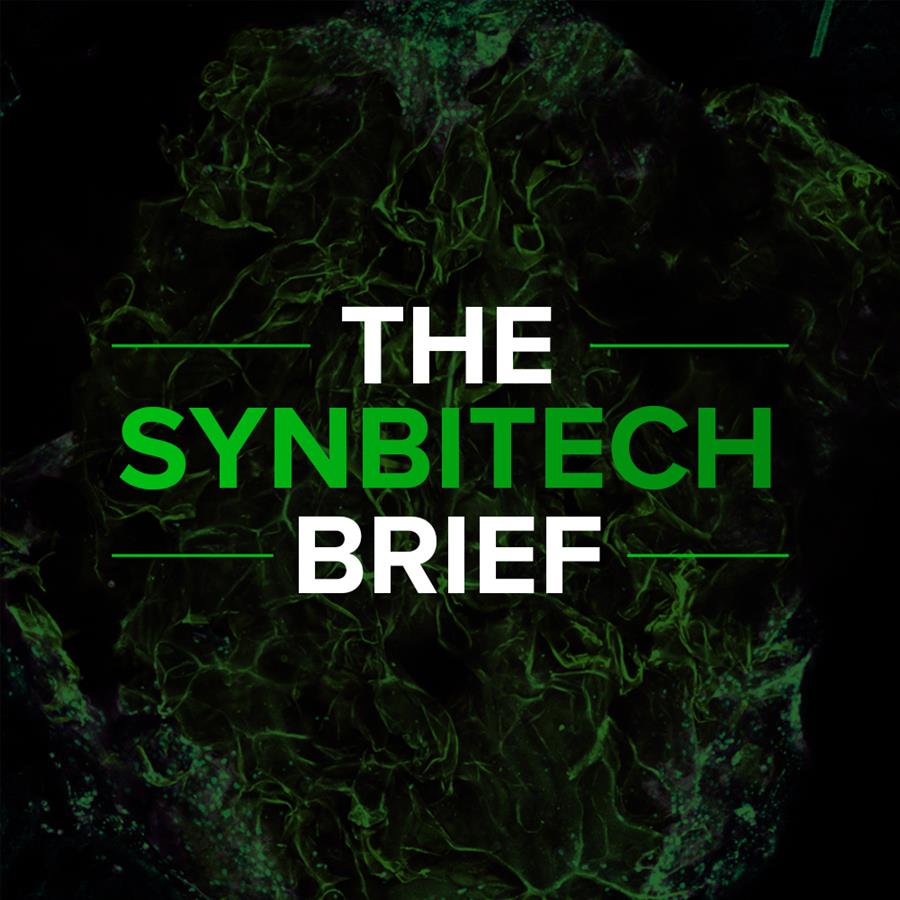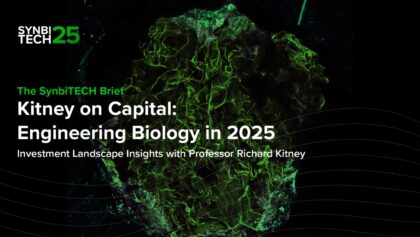Why Generalists Hold the Key to Net Zero: Insights from Jamie Coldwell

“When I saw three MPs and multiple VCs at SynbiTECH, I knew something had shifted. This wasn’t just a science conference, it was clear synbio is being taken seriously.”
– Jamie Coldwell , Sustainability Program Manager, Cytiva
Net zero isn’t optional – It’s the new baseline
The NHS is legally committed to achieving net zero by 2050, and that commitment extends to its entire supply chain. For companies like Cytiva, which supports major pharma players, this means change is not optional, it has to be systemic.
As Jamie Coldwell explains, this policy pressure has created a domino effect across the life sciences sector. Sustainability has moved from the CSR team to the boardroom. And synthetic biology is emerging as a serious contender in the race to decarbonise everything from biomanufacturing to single-use plastics.
Jamie, a biochemist by background, now bridges sustainability and innovation within Cytiva. His passion for synthetic biology began with enzyme design and grew into a belief that engineering biology is essential to solve high-impact industrial problems. In his role, Jamie is optimistic about the progress being made, he’s also clear-eyed about the pace required. He references the “carbon law”; a widely accepted framework in climate strategy, which sets out a halving of emissions every decade to stay within 1.5 to 2 degrees of warming. “You do all the low-hanging fruit by 2030, which should cut emissions by 50%, then 25% by 2040, and so on,” he explains. It’s an exponential decline that becomes increasingly difficult over time. “We’re hitting that rate at our company, which is great.”
To keep pace with net-zero trajectories, we’re now reaching the point where we’ll need new technologies. Many of these solutions, particularly in bioplastics, biomanufacturing, and biofuels, are still in development. The infrastructure isn’t all there yet, but the need is urgent, and the momentum is growing. Jamie puts it plainly: “I believe synbio is the solution to pushing fossil fuels out of many sectors. Oil is the start material of so many things in our lives that we need something just as versatile to replace it – which we must do by 2080 when oil wells dry up. Biology is that thing.”
Synthetic biology has a critical role to play in creating scalable, circular alternatives where traditional renewables fall short. But, Jamie notes, “Industry isn’t just buying into the hype. There’s due diligence happening everywhere; to have venture capital firms telling us they are bringing entire branches of their firms into the engbio space shows that the private sector sees the future value.”
Jamie also emphasises that solving sustainability challenges requires more than just technical breakthroughs, it demands collaboration across disciplines. “I think we need more ‘ands,’” he says, referring to professionals who don’t fit neatly into one box, like scientist or marketer or sustainability lead, but who sit at the intersections. He believes innovation often happens in these overlaps, where generalists bring together ideas and expertise that don’t usually meet. “It’s where a lot of the cool work is,” he adds. Yet, in many organisations, job descriptions and hiring systems still favour narrow specialisation. For Jamie, fostering innovation means recognising the value of these boundary-crossing roles and making space for them, especially in large companies that risk losing the agility and creativity found in start-ups.
For Jamie, SynbiTECH2024 wasn’t just another conference. It was a place to connect with research collaborators, discover technologies, and see the convergence of investors, regulators, and scientists shaping the bioeconomy.
He wasn’t even attending officially as a Cytiva representative. “I just wanted to nerd out,” he admits. But what he found was a dynamic forum where real decisions are seeded, about partnerships, R&D pipelines, and how to scale SynBio for climate impact.

Stay connected to the fast-moving world of engineering biology with The SynbiTECH Brief – a fortnightly LinkedIn newsletter bringing you curated industry news, expert commentary, and behind-the-scenes updates on SynbiTECH2025.
Each edition will deliver fresh perspectives on the commercialisation of synthetic biology, from funding trends and regulatory shifts to platform innovations and sustainability solutions. Whether you’re a founder, investor, policymaker or scientist, you’ll find timely insights and thought-provoking ideas that connect the lab to the market.
